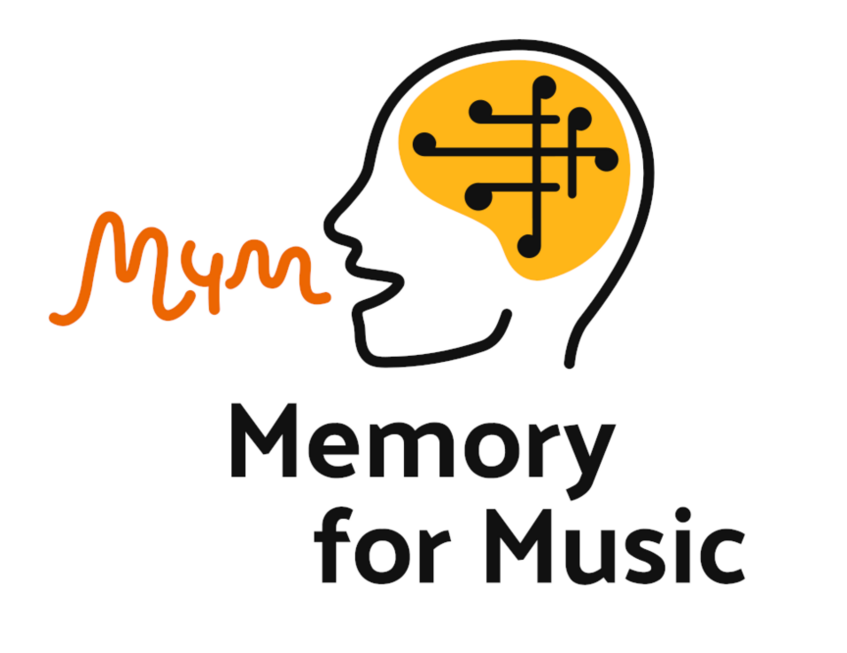Exploring Music-Based Interventions for Alzheimer's Disease: An Interview with Anja-Xiaoxing Cui
Anja-Xiaoxing Cui (Department of Musicology, Faculty of Philological and Cultural Studies) recently secured a 849.217 € grant to investigate the impact of music-based interventions on memory in patients with Alzheimer's disease. The project titled "Music for Memory" was funded by the Austrian Science Fund (FWF). The grant application was supported by a 3.000 € Vienna CogSciHub Seed Grant, which funded a pilot study to show the feasibility of the methods used.

Upcoming Brownbag Session
Thank you to Anja for taking the time to speak with us. You can learn more about Anja's research in her upcoming Brownbag Session on Wednesday, June 11 - register here: https://cogsci.univie.ac.at/brownbag/
Can you tell us a few words about the project?
The Project is called “Music for Memory” and is part of a larger international collaboration called “Memory for Music” (M4M) involving researchers in Norway and Argentina. We came up with the umbrella project and set out to fund the whole project with smaller grants.
The general idea of the project is that memory for music differs from other types of memory. My hypothesis is that this is because music is closely related to motor activity: when we listen to music, we very often do something with our hands, our head or we might even dance. So, music and movement are very closely coupled. While a person’s memory might deteriorate over time, memory for music might not deteriorate in the same way because of this coupling with movement.
As part of this project, I can work with Alzheimer's disease as a model for non-functioning memory and try to find out if memory for music can develop after explicit motoric engagement with music even when there are general memory problems.
How did the Seed Grant play into your application?
We used the Seed Grant to run a pilot study with 40 healthy participants. Our aim was to see if we could use EEG to test semantic memory for music in a short 20-minute session. Previous studies that established EEG to test memory for music have taken about two hours: too long for patients with Alzheimer’s Disease. In the pilot study, we were able to see the same EEG marker as in the longer study.
Will your project include an intervention for the Alzheimer’s patients?
Our intervention is based on a case study from Argentina by Marcela Lichtensztejn, co-PI from Argentina, where a non-musician adult showed increased ability to learn new songs while their overall condition deteriorated. This inspired us to develop our current study using singing as an intervention.
Singing is great because it has a low entry barrier. Some people are no longer as mobile in old age and for them standing and dancing is a barrier. In the same sense, we didn't want to use instrument-based interventions because you first must learn how to play the instrument. Singing is easily accessible to most because it can be done sitting down and you don't need an extra instrument.
We hope to recruit participants through contacts with organizations in Vienna that care for Alzheimer's patients with general practitioners and family doctors, using the workflow established by co-PI Christian Gold, based in Norway.
What are these EEG Markers about?
There is research that shows that wrong tones in familiar songs trigger a certain event-related potential (ERP). We want to use these ERPs as measures of the presence of Memory for Music: A nonverbal way of understanding whether a person “understood” that the music contained a mistake.
In your project, you also collaborate with Narly Golestani – another Associate at the Vienna CogSciHub: can you tell us more about what you will be looking at with her?
Together with co-PI Narly Golestani, we will try to correlate the EEG markers with structural neuroanatomical markers. We will examine the relationship between brain structure – for example in the hippocampus, the fornix, or the auditory cortex – and the ability to recognize wrong tones in songs.
Thank you for your time and insights into your project! We look forward to hearing more from you at your Brownbag Session on Wednesday, June 11!
The Memory for Music (M4M) project is conducted in Norway, Argentina and Austria. It is led by NORCE Norwegian Research Centre (PI Christian Gold) and conducted in collaboration with the University of Bergen, the University of Business and Social Sciences, Buenos Aires, the University of Vienna, and societal partners in Norway.
See the country-specific pages for more information about the Norwegian project team (PI Christian Gold), the Argentinian project team (co-PI Marcela Lichtensztejn), and the Austrian project team (PI Anja-Xiaoxing Cui, co-PI Narly Golestani).
Additional Links:
- Project homepage: https://www.memory4music.net/
- FWF-funded portion of the project on the FWF homepage: https://www.fwf.ac.at/forschungsradar/10.55776/PAT4332724
- Case study by Marcela Lichtensztejn, collaborator on the project in Argentina: https://doi.org/10.56294/saludcyt202292
About the Project
The Memory for Music (M4M) project is conducted in Norway, Argentina and Austria. It is led by NORCE Norwegian Research Centre (PI Christian Gold) and conducted in collaboration with the University of Bergen, the University of Business and Social Sciences, Buenos Aires, the University of Vienna, and societal partners in Norway.
See the country-specific pages for more information about the Norwegian project team, the Argentinian project team, and the Austrian project team.
